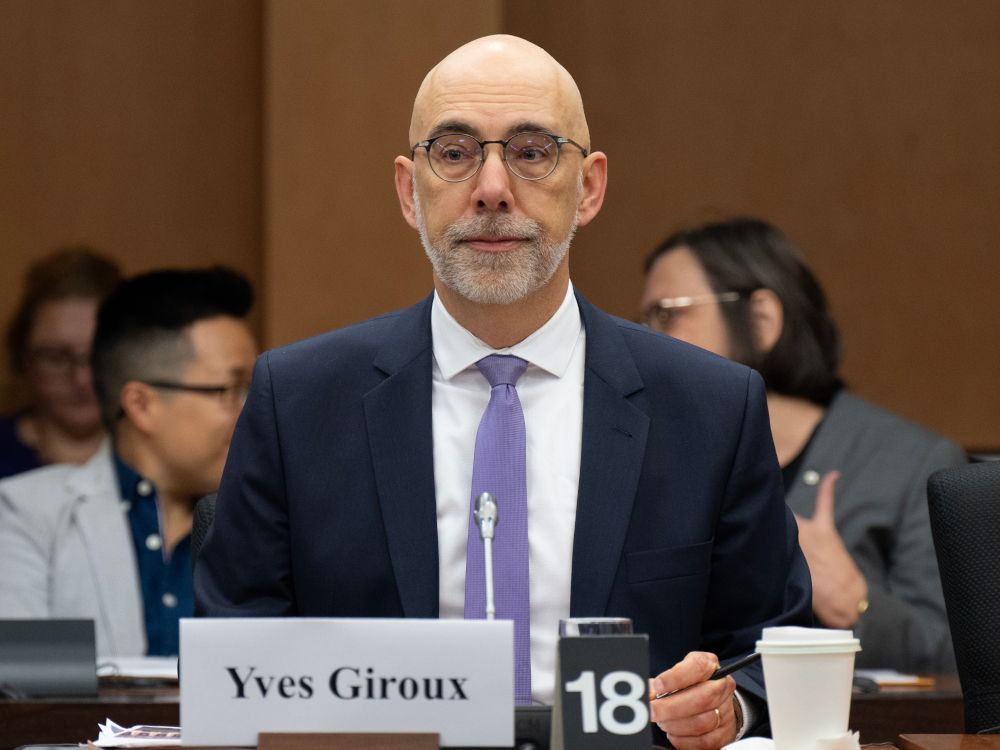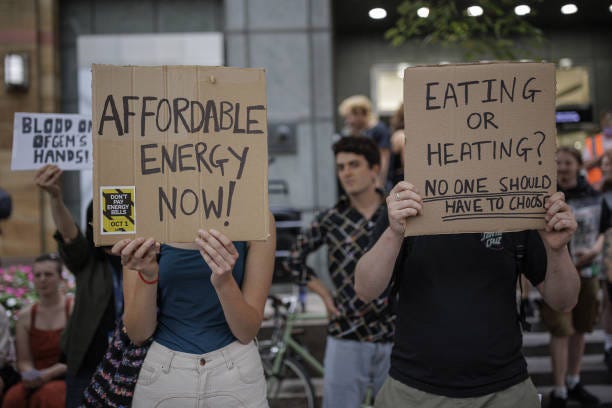1.
An "all of the above" approach to energy policy has by far the most voter support and shows remarkable stability and common support across voter groups.
When presented with a choice among three options—a rapid green energy transition, an “all of the above” energy policy, and emphasizing fossil fuels—American voters across demographics and partisanship strongly prefer an “all of the above” approach to energy policy including oil, gas, renewables, and nuclear. Less than a quarter support a rapid transition to renewables, which drops to under a fifth for working-class (noncollege) voters. Even among Democrats, support for a rapid transition is only a little over a third.
2.
On extreme weather events, most voters have not accepted the apocalyptic reporting found in the media and pushed by climate activists.
Most people hold views of trends in extreme weather events that are consistent with the most recent assessment of the Intergovernmental Panel on Climate Change (IPCC). They do
not say they have personally observed an increase in hurricanes, floods, drought, or tornadoes which is consistent with the current state of scientific understandings. The exception is heat waves where, consistent with the IPCC, a majority report that they have observed an increase in such events.
3.
American voters are reluctant to pay even a small amount to support climate action and this willingness drops quickly as the proposed small costs increase.
When asked if they would support just a $1 monthly fee on their electricity bill to fight climate change, only 47 percent say they would while almost as many (43 percent) are opposed. Even at this level, opposition is greater than support among working-class voters. When the proposed fee is increased to $20, overall voter support plummets to 26 percent with 60 percent opposed. At $40, it is 19 percent support to 69 percent opposition; at $75 it is 15 percent vs. 72 percent; and at $100 it is 7:1 against (77 percent to 11 percent) paying such a fee to combat climate change.
4.
Voters expect an energy transition away from fossil fuels to lead to unexpected problems.
About two-thirds think problems are likely. A follow-up question indicates that voters are most worried about the impact on the prices of energy and everyday goods and about the impact on the reliability of the electrical grid. Voters are most positive about the impact of an energy transition on job opportunities in the energy sector and on air and water quality.
5.
Overall, the public is much more favorable on both solar and natural gas than on wind, suggesting that the concept of "renewables" masks some important differences.
Solar energy tests the best among five energy sources that voters were asked to rank. Thirty-eight percent of voters ranked solar first. Natural gas did the second best, picked first by 26 percent of voters. Nuclear energy came third (15 percent ranked it first) followed by wind (10 percent) and coal (6 percent). Coal is clearly the least preferred energy source with 38 percent ranking it dead last among options. Wind and nuclear also have strong opposition with, respectively, 19 percent and 29 percent ranking the technology their least favorite option.
Share
6.
In terms of the energy they consume, cost and reliability are way, way more important to voters than possible effects on the climate.
Given four choices, 37 percent of voters said the cost of the energy they use was most important to them and 36 percent said the availability of power when they need it was most important. Just 19 percent thought the effect on climate of their energy consumption was most important and 6 percent selected the effect on U.S. energy security.
7.
In terms of proposals to mitigate the effects of climate change, getting to “net zero” as quickly as possible is relatively unimportant to voters.
Asked to consider proposals to reduce the effects of global climate change, voters were least likely to say “getting the U.S. to net zero carbon emissions as quickly as possible” was very important to them personally (29 percent), fewer than said “limiting the burden of regulations on business” was very important (32 percent). Voters were most likely by far to say keeping consumer costs low (66 percent) and increasing jobs and economic growth (60 percent) were very important aspects of climate mitigation proposals. The split was wider among working-class voters: 71 percent thought keeping consumer costs low was very important, compared to 26 percent who thought rapidly getting to net zero was very important.
8.
Climate change as an issue has very low salience to voters.
Voters were asked to evaluate a list of 18 issue areas and rate their priority for the president and Congress to address in the coming year. As a “top priority,” dealing with global climate change ranked 15th out of these 18 areas, well behind strengthening the national economy, fighting inflation, defending the country from terrorist attacks, and keeping Social Security financially sound—and also behind reducing health care costs, dealing with immigration, improving the educational system, keeping energy costs low, reducing the budget deficit, reducing crime, improving how the political system works, improving the job situation, strengthening the military, and dealing with the problems of poor people. The climate issue only ranked above global trade, drug addiction, and issues around race.
9.
Voters support increased domestic production of fossil fuels, but they are unaware fossil fuel production has actually increased in the last several years.
By 22 points (56-34), voters favor more domestic production of fossil fuels—oil and gas. Working-class voters felt even more strongly, endorsing the idea by 30 points. But only 17 percent of voters are aware that the Biden administration has increased oil production on federal lands. However, when informed that the U.S. has, in fact, increased domestic production of oil and gas in the last several years, they are delighted. Almost seven in ten (69 percent) said “this is a positive development, which brings good jobs for U.S. workers, ensures our energy supply and helps the U.S. support our allies who need similar resources” compared to 31 percent who thought “this is a negative development, which brings more pollution, climate change, and continued reliance on fossil fuels.”
10.
Voter interest in electric heat pumps, hot water heaters and stoves, as well as electric vehicles, is weak.
Asked whether they had given serious thought to making certain “green” changes in their home within the past 12 months, 75 percent of voters said they either had not given serious thought to installing an electric heat pump or that that device was not relevant to them; 67 percent said the same thing about an electric water heater as did 61 percent about an electric stove or induction system.
Voters by 17 points (52-35) say they are opposed to phasing out new gasoline cars and trucks by 2035 and many more voters are upset (48 percent) than excited (21 percent) by the idea of phasing out production of gas-powered cars and trucks. By 18 points (59-41), voters say they are not likely to even consider purchasing an electric vehicle as their next car. Just 10 percent say they now own an electric vehicle and two-thirds of those are hybrid rather than fully electric.










